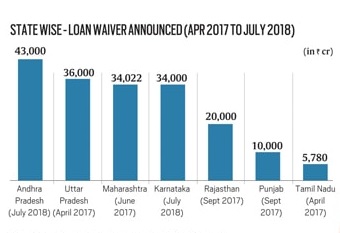7667766266
enquiry@shankarias.in
What is the issue?
Farmers from different parts of India recently marched to Delhi to register their protest against the government’s neglect of farmers’ demands.
What are their demands?
Has loan waiver benefitted farmers so far?

What is the case with minimum support price?

What needs to be done?
Source: The Indian Express